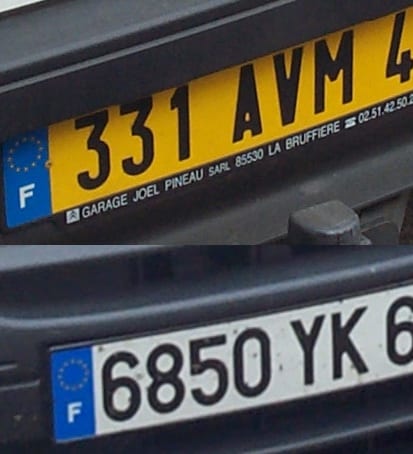As if motorists don’t have enough problems on their plate, the Gendarmerie in the Var has warned of a spate of false car registration numbers. Victims of the crime soon learn of the problem when summonses arrive from the court.
Motorists have 45 days to contest a summons issued in error, but must go through a complicated process. Firstly, they must contest the summons, then lodge a criminal complaint in a police station followed by an application for a new carte grise (registration document). Paperwork needed includes a receipt for the criminal complaint, the certificate of registration for the vehicle, ID, proof of residence and, in the case of a speeding offence, a photograph of the radar machine that recorded the offence.
At the end of the process, the victim should receive a new registration document and a new licence plate. The process is free of charge if all the paperwork is in order.
The crime itself is punishable by five years in jail and a fine of up to €3,750, suspension of driving licence and confiscation of the vehicle.
France was the first country to establish motor vehicle registration plates, nearly 123 years ago to the day, on August 14, 1893. Licence plates became mandatory across the country by a decree of September 30, 1901, which “applied to all vehicles capable of exceeding 30 kmh” – that’s 19 mph.
Fake plates could cost drivers
